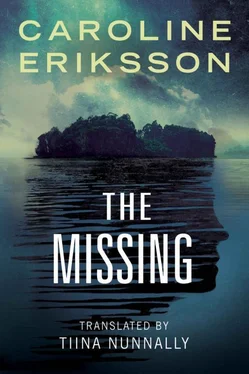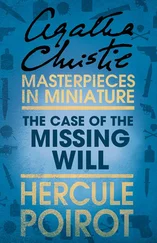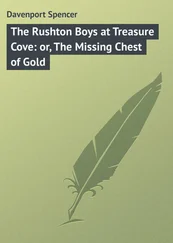Once a week, sometimes more often, I sit down in a worn-out armchair, in which a faceless horde of unfortunate souls has sat before me, and in which others will sit after I’m gone. The rooms are not the same, but they always look similar. A mildly sympathetic face in the chair across from me, a box of tissues on a table between us. And then we converse. Well, maybe that’s not really the right word for it. I’m the one who’s expected to say things, of course. To explain and elucidate. Turn myself inside out.
With each new psychologist, I hope that this time things will be different. I hope the person seated across from me will be bolder than the previous ones. Won’t just settle for asking questions about what really happened to Papa and then wait for me to reply. But instead will be brave enough to look me in the eye and say it out loud. Say that they understand, and then speak the truth. So I won’t have to do it myself. Someone else has to release me. I can’t do it on my own. But that’s never how it turns out.
This usually goes on for a few weeks, sometimes even a couple of months. By then, we will have reached the painful part—or rather, we’ll be going in circles without making any progress.
The psychologist leans forward, patiently asks me the question: So then what happened? It escapes me, I insist, and the mildly sympathetic face grows tense. The psychologist retreats, tries another angle, asks other questions: What do you think about…? What makes you…? Nothing but questions, never any conclusions. So I pay the bill, say that I’m feeling much better now, and walk out of their office and never go back. They offer no objections. They let me go.
Only one of them has ever tried to keep me there. Literally.
That was years ago, before I met Alex. The psychologist was a blond woman, not much older than me. I’d often thought there was something fragile about her, but when I stood up to announce that after this session I was done, that I wasn’t planning to see her anymore, she grabbed my wrist and held on. Gently, and yet with surprising firmness.
“If you leave now, it means you haven’t learned a thing about yourself, and you won’t be any better prepared to confront either the past or the future. Next time you encounter an overwhelming or surprising situation, the pattern will repeat itself.”
She stayed seated in her armchair, and when I looked down, I noticed she was wearing a short-sleeved dress. It was the middle of the summer, and the room was hot. Yet there was something about that dress that caught my attention. I frowned.
“Cardigans and jackets,” I said to her. “I’ve never seen you wear anything with short sleeves before.”
She shook her head to show that she wasn’t about to be distracted.
“Things are going to get worse for you,” she went on. “And you risk being knocked off balance. In the worst-case scenario, that sort of state of mind could have very unfortunate consequences. For you, or for those close to you.”
I could have yanked my hand away and stormed out of the room. But I didn’t.
“What do you mean?”
“Early in life, you learned to adopt certain strategies in crisis situations. You are repeating those same strategies as an adult, even though they’re not effective.”
“What is it with you psychologists? Why can’t you say things so other people can understand?”
She looked at me impassively.
“Okay. I’ll say this as clearly as I can, Greta. What I worry you might ‘think up’ are the same things you did as a child. When you were in shock, when you encountered… adversity.”
Heat bubbled up under my skin, filling my eyes.
“Telling lies?”
“Yes. Or worse.”
♦ ♦ ♦
I stare at the blood seeping out between my fingers and down my wrist. My whole hand is throbbing with pain. My palm is sticky on the steering wheel. I can no longer understand my own motives. I can’t remember my reasoning from when I dashed into the police station, and I can’t form a single sensible thought right now.
It feels like the last shreds of reason are spilling out of me along with the blood from the wound in my hand. Am I about to lose control? Is this how those last seconds feel, right before the big breakdown? The blond psychologist, whose office I was finally able to leave—what would she say if she could see me now? Didn’t I warn you?
The road to Marhem, back to the cabin. I don’t know how I manage it, but somehow I drive the whole way without landing in the ditch or crashing into an oncoming car. I press the gas pedal and the brake, signal, and turn, exactly as if I was an ordinary driver, as if nothing has happened.
When I finally pull in and park in the same spot as before, on the gravel road outside the cabin, there’s blood everywhere. Blood smeared on the steering wheel and part of the dashboard, blood on my shirt, and bright patches on my capris. But at least the wound has stopped bleeding. There is no husband or daughter in your life. And never has been. I shake my head at myself. I should have known better than to go to the police. Should have realized I had to handle this on my own.
I turn the key in the ignition to switch off the engine. I turn toward the passenger-side window and stare out at the road. The other night, there was another car here, right next to mine. It wasn’t properly parked, and the engine was running the whole time. That muffled rumbling was like a bass tone under the agitated voice I heard through the partially open window. Agitated? More like hysterical. Voice? More like a howl, a scream of pain and anger. An icy shiver ripples through my body. Should I be worried? Whoever screamed must have noticed the license plate on my car. And maybe, in spite of their frantic state, they memorized it, that particular combination of letters and digits that would make it possible to identify me.
I reach for my purse on the seat next to me, then gather up and stuff inside everything that had fallen out. The palm of my hand tugs and twinges, and I grimace, picking up the earrings with care. The one who stayed and the one who left. Afterward, I didn’t ask Alex about that nighttime visit. I thought I could put two and two together, that I understood enough. Now I feel a nagging doubt in my mind. What is it I think I understand? At the moment, I seem unable to follow even the simplest train of thought.
Then I’m once again standing in the entryway, on the green and slightly gritty hall rug. I stand there, without taking off my shoes, just listening. At first, there’s only silence. Then I hear a sound from the living room. Hesitant, padding steps. I listen and wait. I know who is approaching. When Tirith comes into view, something inside me relaxes and eases. I sink down on my knees and greedily stretch out my hands toward him. The cat’s fur feels soft under my fingertips, and I realize how much I’ve hungered for that—for touch, for contact—these last twenty-four hours. My whole life.
I stroke Tirith’s back and scratch behind his ears as he purrs happily. He licks my fingers and sniffs at the wound on my hand. He seems surprisingly interested. Again and again, he presses his nose gently on the clotted blood. Then he seems to make a decision and starts cleaning the wound very thoroughly, running his rough tongue over the puncture. At first I let him do it, thinking now we’re connected for life, this cat and I. The past is behind us, and we know nothing about the future, but at this moment, we are joined, merging together. His saliva and my blood.
Then he turns his narrowed yellow eyes toward me, and I impulsively draw my hand away. Slowly I get to my feet. Tirith. An odd name for a pet. Alex was the one who thought of it. I remember when he explained that Minas Tirith means Tower of the Guard. I keep my eyes fixed on the black-and-white cat as I fumble for the door handle behind me. We are staring at each other, Tirith and I. One of us inquisitive, the other tense.
Читать дальше












